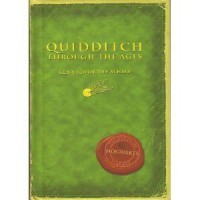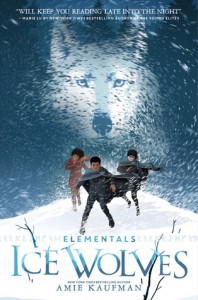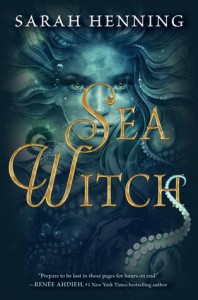This post will contain spoilers for Frost Like Night, the third book in the Snow Like Ashes trilogy by Sara Raasch.

Frost Like Night is the third and final book in the Snow Like Ashes trilogy which I absolutely adored because it centred around lands that only have one season, and our heroine is a refugee royal of the Winter kingdom. Also, there is magic, and our young heroine becomes the fucking queen of Winter. I mean, what more could I possibly want in a fantasy trilogy?
Nothing, I tell you.
The whole thing is wonderful and directly appeals specifically to me.
Frost Like Night picks up where Ice Like Fire left off, with Meira travelling to Paisley to learn how to control her magic. There is heaps of introspection in the first half of the book, which I found really frustrating because it just seemed like there was a whole bunch of talking and thinking and hardly any DOING SOMETHING, but it actually needed to be there because of what Meira decides to do later on in the book to stop Angra and the spread of Decay. Without that slow part, with all of Meira’s introspection, the emotional hit at the end of the book wouldn’t have been so powerful. Anyway I think the trick to get past this part for me was to listen to the audiobook, because that way the pages turn anyway.
Mather was a genuinely good guy, a brave, loyal Winterian, who wasn’t afraid to step down from his role as future king and serve instead a queen, as her soldier, but my favourite part about him was his narrator, Nick Podehl. Nick is such a great narrator that I actually Googled him, found out he did a Communications degree with a minor in Theatre and thought, “Oh, THAT’S why he’s so good!” I felt kind of lukewarm about Mather until I heard Nick’s portrayal. I might kinda have a crush on Nick?
Sorry, Nick.
Meira’s narrator is also really awesome, both of them put heaps of emotion into their voices, do decent jobs of character dialogue including gender switches, and don’t hold back anything at all, committing 100% to telling a great story.
Ceridwen’s narrator was fine too, but to be honest I was not really sure why we got Ceridwen’s point of view until I discovered the short story Flame Like Vines was about her. The story could have been told without her, even parts that are shown right near the climax. It would have been nice if we could have stuck to only Winter narrators. Maybe Nessa or Dendera? I don’t have a problem with Ceridwen, except for the whole Jesse thing…
And OK Theron. Let me talk about Theron.
But first let me point out that this book is heavily biased towards the Winterians. It’s about the Queen of Winter, and she’s got to be perfectly imperfect and all of her Winterians are super loyal and inherently good (bar one, who for no reason betrays everyone, so he’s probably not even WInterians). It’s almost genetic, how everyone else can’t possibly be as good and pure and honourable as Winterians, except if you’re Princess Ceridwen who is almost an honorary Winterian anyway courtesy of her Point of View chapters.
So anyway Theron gets possessed, but because he’s not Winterian and therefore one of the inherently (and tragically) good guys, Meira goes on and on about how he CHOSE to be possessed and do evil things he had no control over, like it’s his own fault he got mind fucked and fucked over and jeez, poor Theron. I actually liked him until he became this possessive possessed shithead whose motivation consisted of very possessive attitudes towards Meira.
Also one thing I found a bit weird was that Cerdiwen and Mather told their stories in third person past tense, whereas Meira told her story in first person present tense, but really over audiobook I hardly noticed this and only really discovered it when I wanted to look something up in my paperback version.
Probably the only things I actually had issues with involved the worldbuilding:
- It’s a huge world with eight distinct cultures and then magic with strict rules on top of that.
- There’s SO MANY rules for this magic, for example you can only use it on specific peoples or you can’t attack or be selfish with it but you can defend or protect someone else without it turning into Decay but even then there are very specific loopholes…
- It’s been a while since I read the other books, but
- Raasch is really great at dropping hints and reminding you what happened previously, so I wasn’t as lost as I feared I might be, but still,
- The magic and worldbuilding is so intricate, detailed, entwined and sometimes heavy that sometimes I did feel a little lost, and
- even though Meira can heal her fellow Winterians, one dies from blood loss in her arms and I’m like OH RIGHT MEIRA WHERE IS YOUR MAGIC NOW YOU’RE ALL TRAINED?
- There was no reason why Meira couldn’t have healed this character and she didn’t even think about it, it was just all sad and stuff, except that I wasn’t sad because I remembered that Meira could heal people the rest of us thought were dead like what happened in the first book, so I kept waiting for it, and it never happened…
- and then later on she heals someone else, and I’m like, OH, SO YOU JUST LET THAT OTHER PERSON DIE BECAUSE REASONS.
I love a big climax, and Frost Like Night has a great big climax that involves everyone you want to be involved, really difficulty hurdles to overcome,including physical, mental, and emotional, and a really satisfying conclusion that happens as a result of all of the struggles everyone goes through over the series.
I really enjoyed seeing Meira rise from an orphan refugee into such a position of power, challenge the destiny she is forced into, and her decisions revolving around that and her coming to terms with it. She really is a great character to hang out with and I enjoyed almost every moment with her.
PS it’s not Game of Thrones meets Graceling, come on marketing department, you can do better than that.





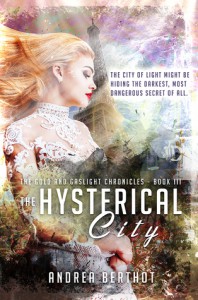
 1
1

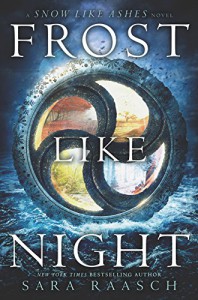



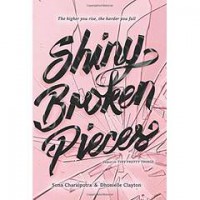
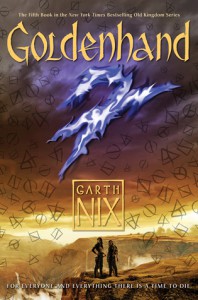

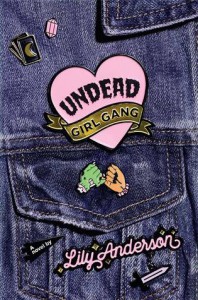








 However, there were a couple of things I wasn’t a big fan of. I felt that her relationship with the Prinz was organic, but I felt that the other corner of the supposed love triangle, with the character Blaise, was forced. I didn’t like Theo reflecting on her feelings for Blaise when he clearly didn’t have any for her but still acted like a jealous boyfriend when it suited the plot. I mean, just because you kiss someone doesn’t mean you’re in love, right? So it’s a love triangle without being a love triangle. Not that there’s anything wrong with love triangles!
However, there were a couple of things I wasn’t a big fan of. I felt that her relationship with the Prinz was organic, but I felt that the other corner of the supposed love triangle, with the character Blaise, was forced. I didn’t like Theo reflecting on her feelings for Blaise when he clearly didn’t have any for her but still acted like a jealous boyfriend when it suited the plot. I mean, just because you kiss someone doesn’t mean you’re in love, right? So it’s a love triangle without being a love triangle. Not that there’s anything wrong with love triangles!